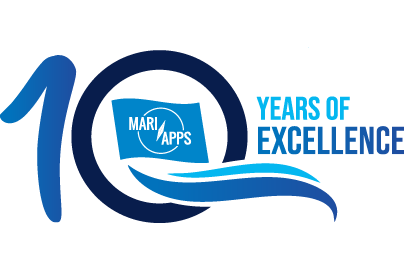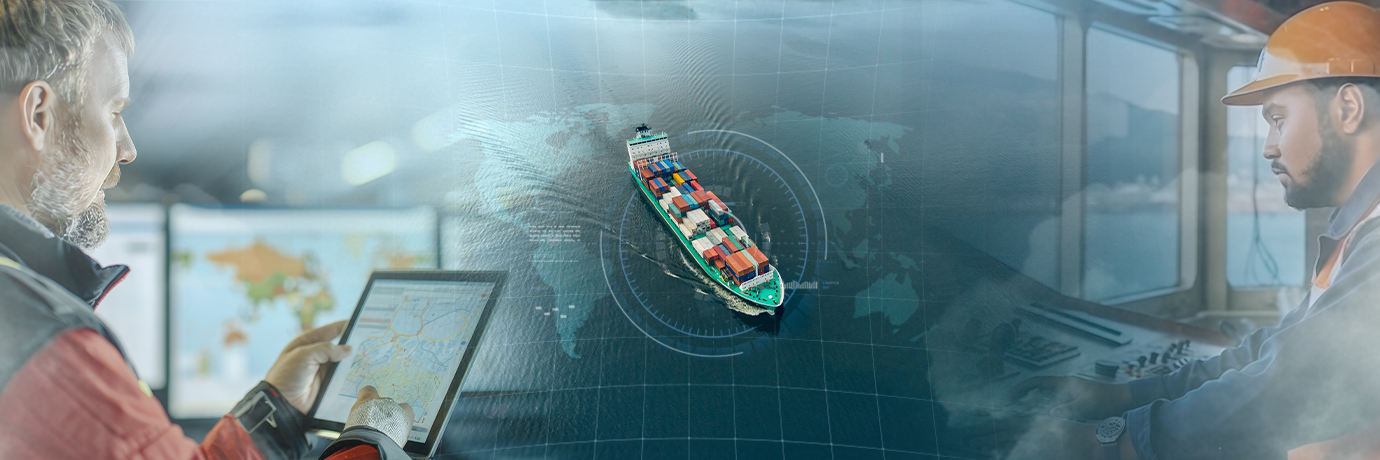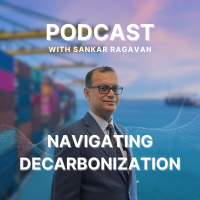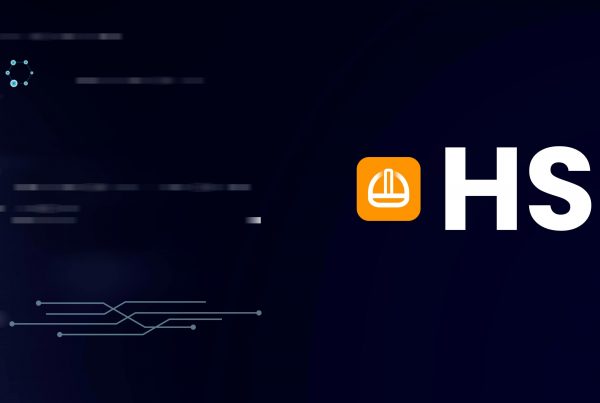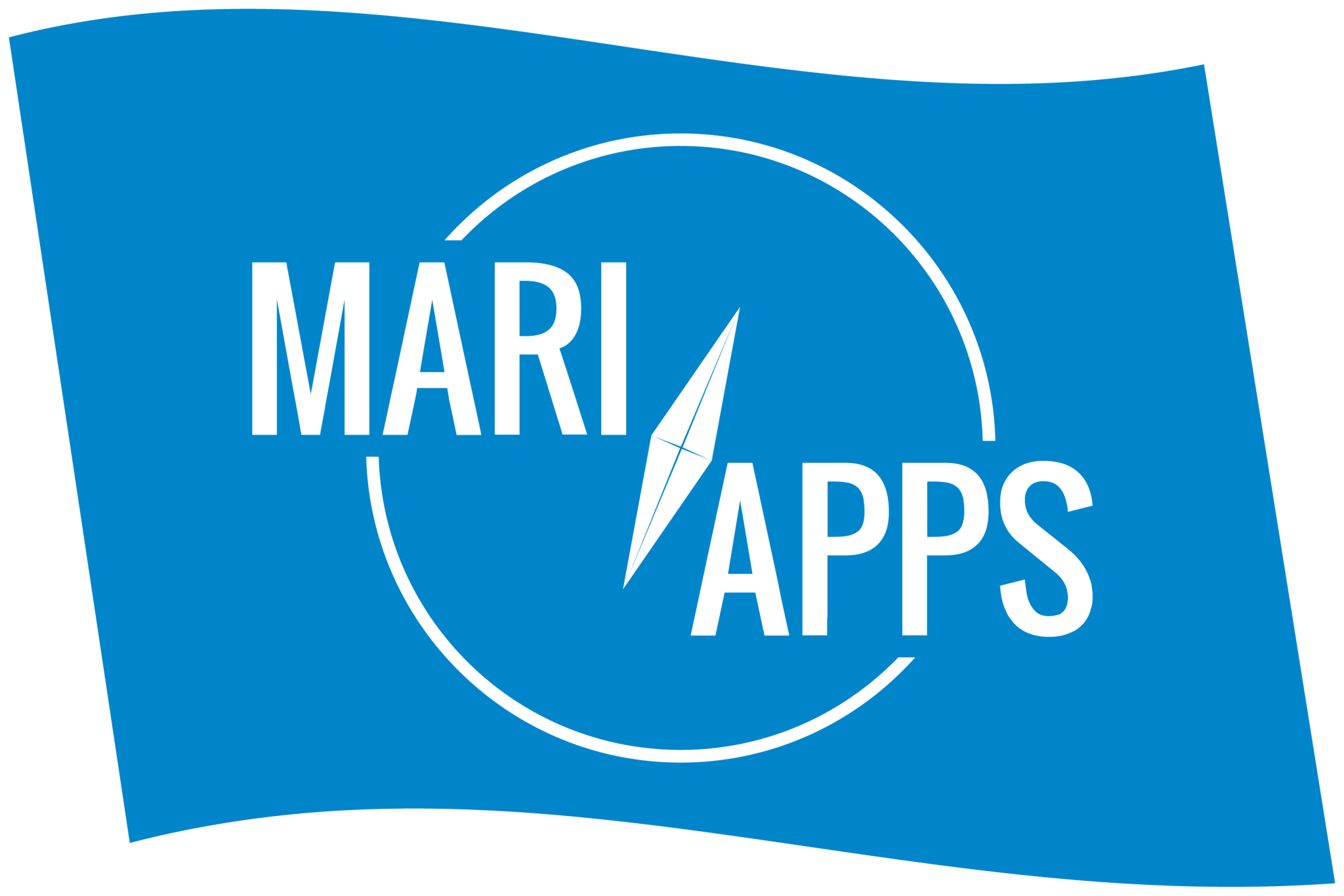Anchored in Innovation: Solving Digital Maritime Challenges
In the age of digital transformation in the shipping industry, combining existing and emerging technologies to improve efficiency and drive profits has proven invaluable. This approach also facilitates advancements towards sustainability and conservation goals. One of the main objectives is OPEX (operational expenses) reduction and efficiency, which includes exploring potential cost savings with the adoption of digital solutions to further facilitate and streamline fuel and energy management, port charges, insurance, repairs, and personnel.
In this article, we will delve into the most prevalent pain points and offer fine-tuned digital solutions developed by MariApps to streamline operations and reduce overall operational expenses.
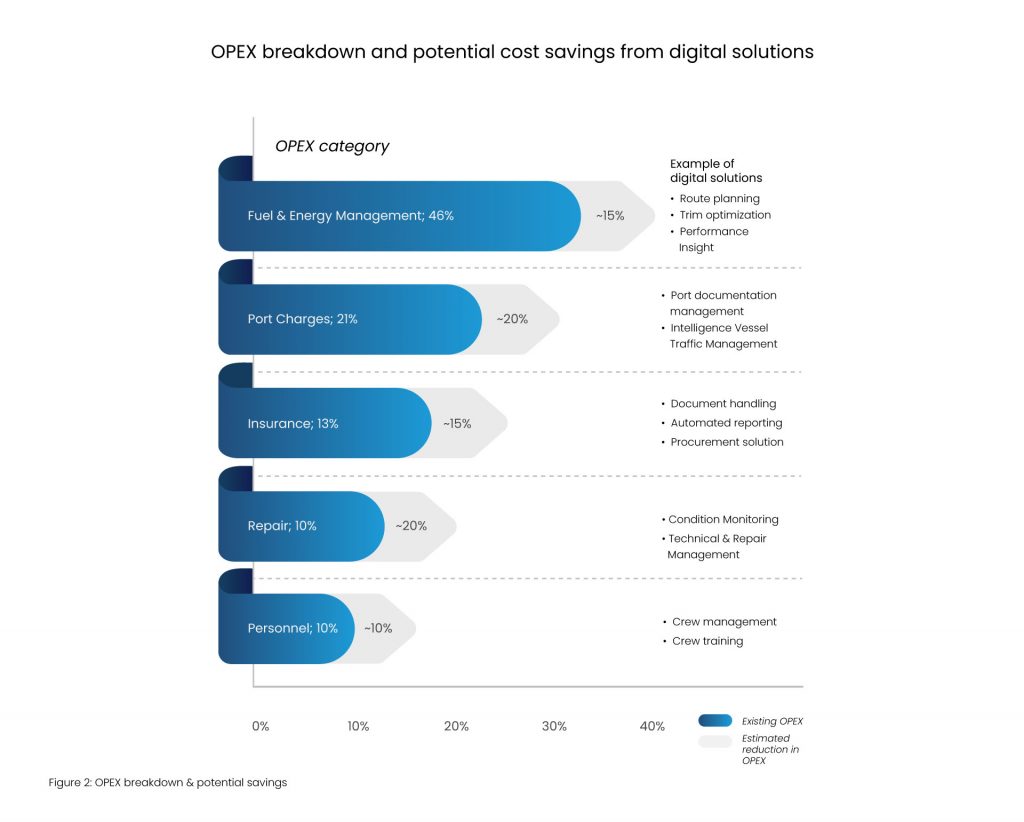
Adapted from Digital Transformation in the Shipping Industry is here, Article by Michael Papageorgiou, Senior Manager, Advisory Department, KPMG for NAFS magazine
Port Charge Disbursement
Efficient port documentation and financial management are crucial for maximizing operational efficiency at ports. Handling port charges, disbursements, and the complex financial transactions required for multinational maritime operations demands a robust and integrated system.
Our Accounts module centralizes financial accounting data, enabling seamless management of port charges and disbursements across currencies and companies. With features like automated invoice processing, direct bank transfers via EDI, and complete audit trails, the Accounts module ensures transparency and accuracy in every financial transaction. This integration with other core modules like Procurement and Payroll further streamlines operations, allowing for smoother vessel management cycles from start to finish.
Fleet and Energy Management
The role of voyage planning and route optimization have proven to be critical factors that are often time-consuming and complex with a myriad of challenges related to environmental regulations, unpredictable weather conditions, and safety concerns.
Predictive analytics and historical data facilitate route planning for improved schedule adherence and cost-effectiveness. smartOps offers advanced data analysis that provides users with near real-time data and detects deviations from predefined parameters allowing users to monitor and optimize fuel consumption and energy management. LiveFleet enables users to monitor fleet operations on their smart devices, gain valuable insight, and facilitate critical decision-making processes.
Repairs and Maintenance
Ship repairs and maintenance ensure the safe and efficient operation of ships with regular inspections, testing, and servicing of all equipment, machinery, and systems.
The main objective of planned maintenance is to prevent machinery malfunctions and failures that may result in safety hazards and operational interruptions, a robust ship maintenance plan contributes to enhanced operational performance, improved safety, environmental protection, and minimized downtime.
Maintenance features tabular and graphical views of completed, scheduled, and critical planned vessel maintenance including a computerized maintenance system for centralized spare parts management and equipment data.
Access pre-defined Excel templates tailored to vessel types, equipment, and spare parts with efficient job plan creation and scheduling. Seamless data integration with the HSEQ module ensures a centralized approach to streamline compliance adherence, interpret trend analysis, risk mitigation, and improve safety.
The Drydock module complements this process by consolidating all dry dock procedures into a single integrated system. It streamlines the planning and execution of dry dock operations, enabling defect job tracking and dry dock specification building. The module seamlessly integrates with the Maintenance module to ensure efficient scheduling and execution of repairs, enhancing the overall maintenance workflow while ensuring vessel readiness.
Insurance
Insurance is vital for ship managers and ship owners due to its multi-faceted role in risk mitigation, regulatory compliance, financial security, crew welfare, protection of cargo, operational continuity, reputation management, and fulfilling contractual requirements.
The Insurance module is a simplified, cloud-based digital solution that streamlines the management of marine claims, providing a reliable solution for handling, reporting, and operational analysis. From vessel to shore, it safeguards your cargo by offering an efficient way to record and process all types of ship management-related claims.
Document Management
Managing the vast amount of documentation required for vessel operations, maintenance, and compliance is a complex and often overwhelming task. From safety certificates and maintenance records to crew documents and compliance certificates, the manual handling and retrieval of these documents can be time-consuming and prone to errors. This inefficiency can lead to operational delays, increased costs, and compliance risks.
QDMS streamlines documentation to support both internal and external documents with revision control mechanisms from creation to publishing. In addition, the built-in document replication feature ensures the swift transfer of files from ship to shore.
An efficient document management app, QDMS Wiki, allows ship management and ship-owning companies to alleviate time-consuming and labor-intensive processes, by automating document retrieval including vessel maintenance records, compliance certificates, crew dates, manuals, and safety certificates. QDMS Wiki allows for improved accessibility, collaboration, heightened security with encryption, access controls, and cost savings by reducing paper consumption and physical storage requirements.
Crew Management
Crewing is crucial for ship managers and ship owners due to its significant impact on the safety, efficiency, and overall success of maritime operations. Efficient recruitment, scheduling, and payroll management of skilled crew members ensure that vessels are operated competently, adhering to international maritime regulations and safety standards.
Staying up-to-date with the latest digital technologies and training programs is hugely beneficial to seafarers as they are sufficiently equipped with the knowledge, skills, and experience to successfully navigate challenges at sea.
The Crewing module was developed and continuously refined to streamline crew management by providing accurate data and analysis of crew pool statistics, indicating KPIs, simplifying resource forecasting, and seafarer planning.
Artificial Intelligence (AI)
Amidst the evolving landscape of the shipping industry, AI has emerged as the pinnacle of technological advancement that further enhances digital solutions to deliver cutting-edge capabilities and functionalities. Our new functionalities include QDMS AI Search, FaultSenseAI, and IntelliCrew, developed by OceanAI.
AI Search is powered by a LLM (Large Language Model) chatbot to interpret the content of queries beyond simple keywords to locate relevant documents swiftly and accurately by leveraging OpenAI’s embedding technology that ensures efficient retrieval and increased scalability.
IntelliCrew automates the selection process for off-signers and recommends signers based on rank match, experience, document verification, and more. The utilization and automation of experience-based scoring ensures that selected crew members are equipped with sufficient experience and knowledge for smooth operations.
FaultSenseAI is an engine predictive maintenance tool that predicts engine failures before they occur. It enables proactive maintenance and minimized downtime, by analyzing high-frequency sensor data and identifying potential issues early on.
Sustainability and Conservation
The adoption of digital technologies has contributed largely to the industry’s sustainability and conservation efforts. The elimination of paper processes in the industry has significantly impacted sustainability efforts, with the utilization of cloud computing that reduces processing time and a reduction of manual errors.
IMO’s push towards a greener direction by reducing emissions by 70% by 2050 has increased regulations and implementation of policies that have resulted in the enactment of comprehensive measures that require digital technology providers to expand services to include fleet performance analysis tools to oversee and manage decarbonization, with additional services related to EU ETS, Data Management, FuelEU, and CII services.
“Digitalizing documents is evaluated as the most value-added factor and a feasible solution in the short term in greening maritime transportation”
(Garg and Kashav, 2019, The State of Commodity Dependence, UNCTAD)
Digitalization within the industry has revolutionized and empowered stakeholders to streamline their operations, increase productivity, enhance accessibility, and move towards greater environmental sustainability within the ever-evolving competitive landscape.
MariApps Marine Solutions is dedicated to developing innovative solutions to ensure the safety of the vessel, crew, and cargo by utilizing cost-effective and efficient applications to streamline all maritime business and operational processes.
Get in touch to find out more about our digital solutions.
